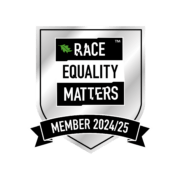Interview with Together Recovery Worker Paul Appleby
 Paul Appleby was previously a service user with Together’s Norfolk Integrated Housing and Community Support Service (NIHCSS) and has since become a permanent member of that team having previously volunteered with the service. We caught up with Paul to hear about his story, the process of becoming a volunteer and then a paid member of staff and about the value of lived experience when supporting others.
Paul Appleby was previously a service user with Together’s Norfolk Integrated Housing and Community Support Service (NIHCSS) and has since become a permanent member of that team having previously volunteered with the service. We caught up with Paul to hear about his story, the process of becoming a volunteer and then a paid member of staff and about the value of lived experience when supporting others.
I understand that you first came to know Together after using the community support part of NIHCSS services, would you mind telling us a bit about yourself and your experience of that time?
Yes, that’s fine. I’d previously be a long term sufferer with mental ill health and was housebound. I’d experienced severe depression and high anxiety and that then led to me developing agoraphobia. I tried other routes for support initially speaking to different GPs and being referred to NHS services and some charities but the provisions there didn’t really work for me and I didn’t feel comfortable with them.
When I came into contact with NIHCSS they catered to my needs properly and seemed interested in me as an individual setting goals specific to me. Those goals were small to medium to large which made them feel achievable and they could range from standing out in the garden to going on a trip on my own at first. After that we reassessed those goals as time went on and set new ones which felt like it worked for me. They also suggested I attend some group sessions which I dreaded at first but they were nothing like I’d imagined and were helpful.
You said your life changed following the support you received from NIHCSS, do you think there are parts of the approach that staff took to supporting you or peers in other groups that were particularly helpful?
The team really saw me as a person rather than someone with an illness there was a lot more humanity to the approach than I’d felt with other services. Attending group sessions was something that I found really useful. I had a picture of what they’d be like from TV or films but it was really different and I gradually got more involved listening to people’s stories and then contributing myself more. As I did that the peer support team at NIHCSS, who are brilliant by the way, noticed that I was getting involved and saw potential in me to possibly become a volunteer.
I was flattered by interest in becoming a volunteer and giving advice myself but was also worried about my own mental health. I think at that point I just felt like another service user. I took time to think about whether it was the right thing to do and whether I felt like it was something I could manage. During that time the peer supporters were supportive and we had honest conversations and I decided to become a volunteer.
Each person’s experience of managing their mental health Is different, are there particular things you feel you learned about yourself or others or coping strategies you feel helped you?
I think one thing I’ve learned is to release emotions and to talk to people about those and the way I’m feeling as previously I’d keep that to myself. Becoming aware of that and acknowledging the effect that had was a big step for me in my story. The group sessions helped with that and feeling comfortable in them helped me to express myself and talk about things more. I think also helping others is something I enjoy and I’ve learned from listening to other people’s experiences.
You’ve since volunteered with Together as a peer worker and now work in a permanent role as a recovery worker, how have you found those roles and working with others who’ve experienced mental distress?
Well, I suppose the first big difference is the paperwork as a volunteer is different and there’s just one form to fill in but then there’s a whole load of forms to complete and a new system to work out as a recovery worker. The team I’ve joined have been really supportive with that to helped me adjust as there’s a whole load of stuff to fill in. I had worried a bit about making sure I completed all of the forms and there was a bit of pressure so the support has been important. I have a fantastic manager and a brilliant team around me and if mistakes are made we all deal with them well together and look to learn from them.
Taking on the permanent role hasn’t really changed my approach to meeting people and engaging with them. I want to talk to people as human beings in the way that people did to me when I was accessing support and hopefully it can make a difference for them like it did for me. I wanted to be part of the human race again and to be able to be included and to move forward so I remember that when I speak to people. I look to acknowledge there are problems and try to see them from that person’s point of view so we can overcome them together rather than those problems being dismissed. I find there is stigma in mental health we need to combat. I tend to think with my role I know I have to have my professional hat on but within that I can still maintain the human touches that make a difference to the support we provide.
Lived experience is an important part of Together services, how do you feel your own experiences help you to work with others?
I think I’ve learned new things and developed new skills and more perspective from being in different kinds of situations. In my volunteer role, there was a shortage of peer supporters available at one point and they needed a volunteer to attend an LGBTQ+ group. I have friends from the LGBTQ+ community but joining a group specifically for that community was something I hadn’t done before. I did hesitate initially but I don’t think it was about could I do it, more would those in the group be OK with someone joining who could be considered an outsider. As it turned out, it’s been the best group I’ve attended and I’ve learned loads from it developing an understanding of the needs of people in the group and their perspective on things. Attending that was a big turning point for me and I showed myself I was open to new challenges. I learned a lot more from listening to the experiences of those other people and from speaking to people from diverse backgrounds.


